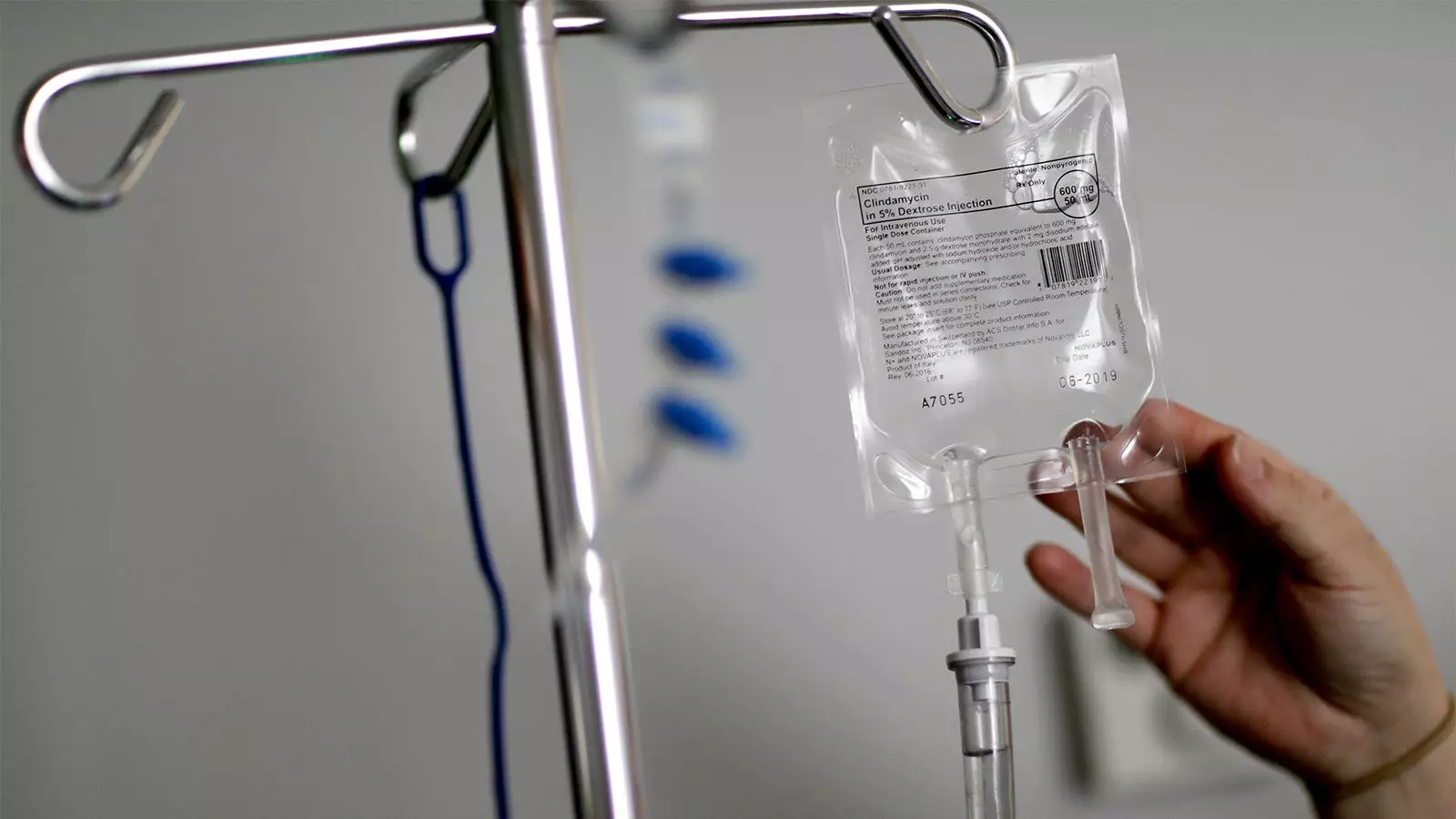As Hurricane Milton approaches Florida, the stakes have risen dramatically for healthcare providers and the manufacturers of essential medical supplies. Federal and state officials are scrambling to relocate critical hospital supplies, particularly intravenous (IV) fluids, in an effort to ensure that healthcare facilities remain stocked and functional amid escalating crises. This is against the backdrop of previous disruptions from Hurricane Helene, which had already thrown a major manufacturing plant in North Carolina into upheaval, severely affecting the availability of a product vital for patient care.
The situation underscores a significant vulnerability in the United States’ healthcare supply chain. Hospitals across the nation rely heavily on a concentrated supply of IV bags, with more than 2 million bags utilized daily to deliver fluids and medication to patients. These statistics indicate the scale of dependence on a few production facilities, making any disruption a potential public health crisis. Baxter International, which suffered damage at its North Carolina plant—responsible for nearly 60% of the country’s IV fluid supply—has highlighted this precarious reliance.
Amid these challenges, B. Braun Medical, another key player in the IV fluids market, has announced proactive measures. By relocating their IV inventory to a secure site away from Daytona Beach, where their plant is located, they aimed to sidestep the storm’s impact. This foresight was not shared by Baxter, which has faced criticism for its reactive rather than proactive approach. Mike Ganio, PharmD and a drug shortages analyst, emphasized the difference: “Baxter was caught off guard, but B. Braun had advance notice and was able to move all of their supply out of harm’s way.” This comparison raises critical questions about preparedness and the responsibilities of manufacturers in a sector where human lives are directly impacted by supply continuity.
The ongoing concern is not merely about inventory management; it is about patient care and safety. If hospitals are forced to ration IV bags or implement strict conservation measures, the direct consequences could be devastating, particularly for vulnerable patient populations who rely on these supplies for hydration, medication delivery, and other essential treatments.
In light of the severity of the situation, the American Hospital Association has urged the Biden administration to take urgent action by declaring a national emergency. This call to action seeks the invocation of the Defense Production Act, historically used in times of shortage to mandate that private companies prioritize specific products deemed essential to national health and safety. Health Secretary Xavier Becerra’s lack of response regarding activating emergency powers raises concerns regarding governmental readiness to confront supply chain disruptions.
Officials have noted alternative measures being considered, such as temporary imports and extending expiration dates on current supplies, which while helpful, may not address the immediate shortages faced by hospitals across the country. The government’s past actions during crises, such as the baby formula shortage and the early days of the COVID-19 pandemic, set a precedent for such decisive measures. However, reliance on past strategies may not suffice in the face of ongoing and multifaceted supply chain issues.
As the situation develops, hospitals and specialty pharmacies are increasingly turning to compounding as an answer to meet patient needs. In cases where specific IV fluids are in short supply, medical professionals are permitted to create custom formulations to remedy shortages. This adaptability allows healthcare providers to maintain critical care, yet it raises issues of standardization, patient safety, and quality control.
The current crises serve as a stark reminder of the complexities surrounding healthcare supply chains and the urgent need for systemic changes. Ensuring the availability of essential medical supplies requires coordinated efforts among manufacturers, governmental agencies, and healthcare institutions. As we stand at a crossroads, it is crucial that stakeholders take the lessons learned from these disruptions seriously, moving towards greater resilience in the healthcare supply system.
With the threat of Hurricane Milton, the urgency of addressing these challenges cannot be overstated. The lives of patients depend on a responsive and robust supply chain, and it is the responsibility of all involved to safeguard that.

Leave a Reply